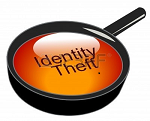
NAPLES: 239-262-1040 | MARCO ISLAND: 239-394-7502

NAPLES: 239-262-1040 | MARCO ISLAND: 239-394-7502
Written by Ronald W. Gustason, CPA
 Are you concerned about becoming a victim of identity theft? Perhaps, you should be. According to the Collier County Sheriff’s Department, Collier County has one of the highest per capita incidents of identity theft. It may not be a matter of if you become a victim, but rather a matter of when. Identity thieves are stealing credit & debit card numbers, tax refunds, social security payments and all manner of personal data that can be utilized to fraudulently take advantage of your good credit for their benefit.
Are you concerned about becoming a victim of identity theft? Perhaps, you should be. According to the Collier County Sheriff’s Department, Collier County has one of the highest per capita incidents of identity theft. It may not be a matter of if you become a victim, but rather a matter of when. Identity thieves are stealing credit & debit card numbers, tax refunds, social security payments and all manner of personal data that can be utilized to fraudulently take advantage of your good credit for their benefit.
Here are a few things that you can do to protect yourself and your family:
• Where possible use cash for smaller transactions. Every time you hand someone your credit or debit card, you are at risk for identity theft. A dishonest clerk or restaurant server can quickly swipe your card through a small hand held device that records your account information. Many thieves then sell your information to other thieves who utilize the information to make fraudulent purchases throughout the world.
• Consider replacing your debit card with a credit card. While the information can be stolen from either card, your risk is greater with a debit card. A fraudulent purchase on your debit card immediately hits your bank account. Thieves can drain a bank account in minutes leaving you with no money to pay bills or make other purchases. While your bank card company may reimburse you for your loss, it may take weeks before you get your money back. On the other hand, if a thieve steals your credit card, he has really stolen money from the bank who issued the card. Once you notify the bank, they must immediately credit your account and then use their resources to retrieve funds from the vendor who accepted the stolen card. If you must use a debit card, do not keep large sums of money in your bank account.
• Use your bank’s online systems to check your debit or credit cards transactions frequently. Don’t be satisfied with looking at your statements once a month. The sooner you spot a problem, the more likely you will be able to minimize the damage from stolen card information.
• Check your credit report regularly. Stolen identity information can be used to borrow money and obtain retail credit without your knowledge. You have a right to a free credit report every twelve months from each of the three nationwide credit reporting agencies. Order all three reports at once or order a different report every four months. To order, go to annualcreditreport.com or call 1-877-322-8228.
• Never respond to incoming phone calls, emails or text messages with personal information. Legitimate companies (and the IRS) will never ask for information this way.
• Shred all documents that contain personal, financial or medical information before you throw them away.
• Freeze your credit. Contact each of the three nationwide credit agencies and request a credit freeze (also known as a security freeze). The freeze is free if you are a Florida senior and $10.00 for others. A credit freeze will prevent all creditors from accessing your credit history. No new credit will be approved so new credit cards, loans, etc. are possible. However, understand that a freeze locks out all credit inquiries. You will need to contact the credit bureau(s) and lift the freeze before you apply for any new credit. This strategy is particularly well suited to seniors who do not anticipate using their good credit to obtain new credit cards, car loans and home loans. Canceling a freeze is generally free. Different fees apply in different states. If a credit freeze appeals to you, contact the credit agencies directly. Be sure to lift your freeze a few days in advance of the time you expect to use your credit.